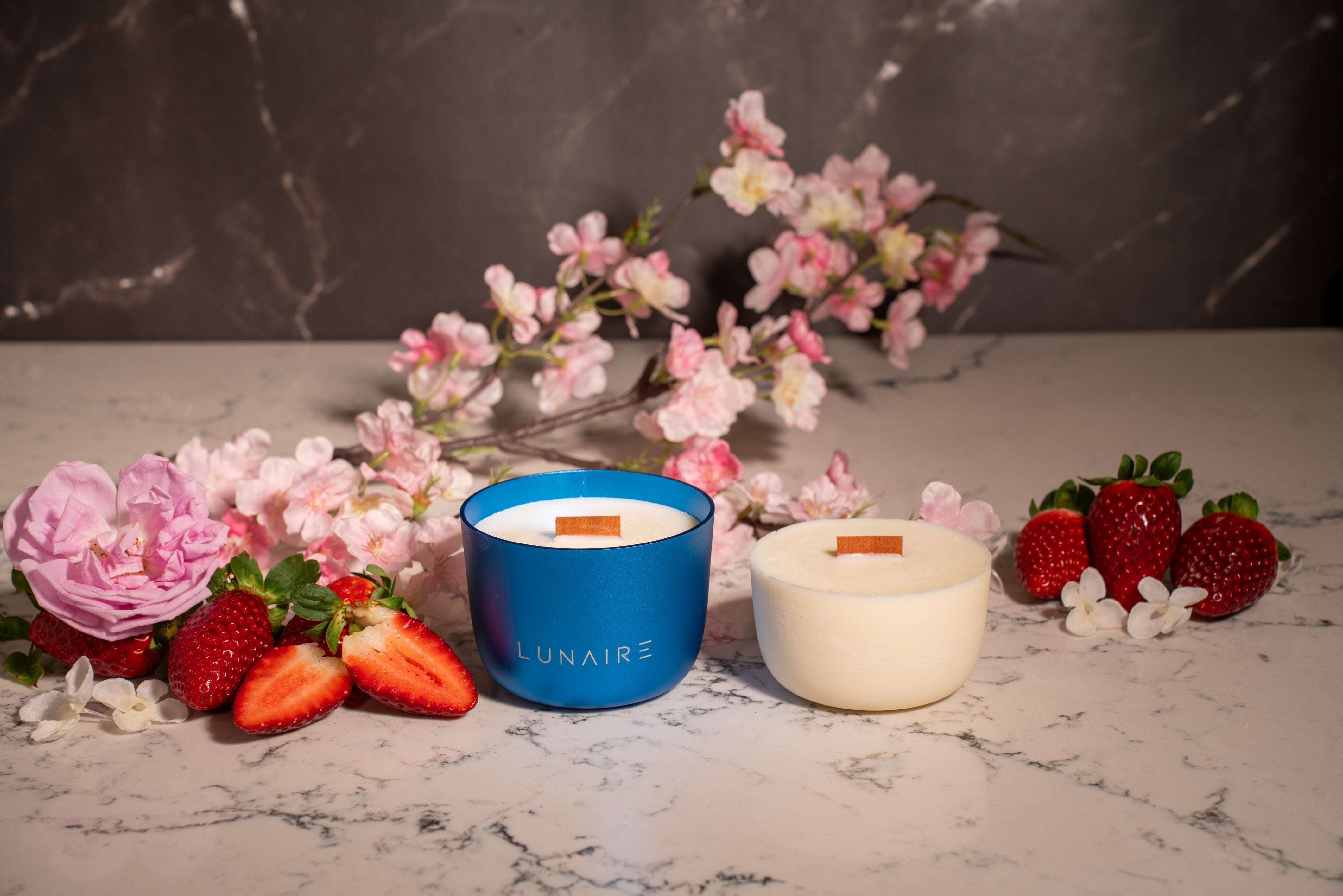Have you ever caught a whiff of something and felt an instant wave of nostalgia, calm, or even excitement? Scent has a profound effect on our emotions, memory, and behaviour, making it a powerful yet often overlooked tool in shaping our daily experiences. The psychology of scent explains why certain fragrances can make us feel relaxed, energised, or even more productive.
The Science Behind Scent and the Brain
Fragrances interact directly with the limbic system, the part of the brain responsible for emotions, behaviour, and memory. Unlike other senses, scent bypasses the thalamus (the brain’s sensory relay station) and has a direct connection to the amygdala and hippocampus—key areas involved in emotional processing and memory formation. This unique pathway explains why the smell of freshly baked cookies can transport you back to your childhood kitchen or why lavender can make you feel instantly calm.
A study conducted by the Sense of Smell Institute found that people can remember scents with 65% accuracy after a year, compared to only 50% accuracy for visual memory. This highlights the strong connection between scent and memory, reinforcing the idea that fragrances can shape our experiences on a deep psychological level.
The Emotional Impact of Different Scents
Each scent carries its own unique psychological and physiological effects. Here are some of the most impactful fragrances and how they influence mood:
Relaxation and Stress Reduction
-
Lavender: Proven to reduce anxiety, lower heart rate, and improve sleep quality. A 2019 study published in Frontiers in Behavioral Neuroscience found that lavender essential oil increased slow-wave sleep, which is crucial for feeling well-rested.
-
Chamomile: Known for its calming and sedative properties, chamomile essential oil can lower cortisol levels and promote relaxation.
Mood Enhancement and Energy Boosting
-
Citrus (Lemon, Orange, Grapefruit): Energising and uplifting, citrus scents increase serotonin production and help alleviate symptoms of depression. A study in Chemical Senses found that exposure to citrus scents led to increased alertness and improved mood.
-
Peppermint: Increases energy and enhances cognitive performance. Research from The International Journal of Neuroscience showed that peppermint improves focus and reduces fatigue.
Comfort and Warmth
-
Vanilla: Associated with feelings of warmth, comfort, and happiness. Research from the Memorial Sloan Kettering Cancer Center revealed that patients exposed to vanilla scents reported lower levels of anxiety.
-
Sandalwood: Known for its grounding and meditative properties, sandalwood is commonly used in aromatherapy to promote relaxation and emotional balance.
Focus and Mental Clarity
-
Eucalyptus: Helps clear the mind and improve concentration. A study in Evidence-Based Complementary and Alternative Medicine found that eucalyptus enhances cognitive performance and reduces mental fatigue.
-
Rosemary: Boosts memory and cognitive function. A study from Therapeutic Advances in Psychopharmacology showed that exposure to rosemary increased memory recall by up to 75%.
How to Incorporate Scent into Daily Life
Harnessing the power of scent in everyday life can significantly enhance well-being. Here are practical ways to integrate fragrances into your routine:
At Home:
-
Use scented candles or essential oil diffusers to create a calming or energising atmosphere.
-
Keep lavender-infused pillow sprays for better sleep quality.
-
Use sandalwood or vanilla-scented candles in living spaces to evoke warmth and comfort.
At Work:
-
Place a peppermint or citrus diffuser on your desk to improve focus and mental clarity.
-
Keep a rosemary-scented balm or oil handy for an instant cognitive boost during work or study sessions.
Personal Care:
-
Choose perfumes or colognes with confidence-enhancing notes like sandalwood or citrus.
-
Incorporate aromatherapy-based skincare products for a holistic sensory experience.
-
Use eucalyptus or menthol shower steamers to invigorate your morning routine.
Case Study: The Impact of Scent in Retail and Hospitality
Businesses have long recognised the power of scent to influence consumer behaviour. Hotels, retail stores, and even airlines strategically use fragrance to enhance customer experience and increase sales.
-
Retail Industry: A study published in The Journal of Business Research found that pleasant ambient scents can increase retail sales by up to 20%. Brands like Abercrombie & Fitch and Lush use signature scents to create a memorable shopping experience that keeps customers returning.
-
Hospitality Industry: Luxury hotels, such as the Ritz-Carlton and Westin, use bespoke fragrances in their lobbies and rooms to create a signature brand experience. Research from The Journal of Consumer Psychology suggests that a consistent ambient scent can enhance guests' perception of cleanliness and relaxation.
-
Workplace Productivity: Companies like Google and Nike have experimented with scent diffusion in offices to enhance employee focus and reduce stress levels. Studies show that peppermint and lemon scents, in particular, can improve concentration and job performance.
Final Thoughts
Understanding the psychology of scent allows us to curate our environment intentionally, influencing emotions and behaviour in positive ways. Whether it's through home fragrances, personal care, or workplace aromatherapy, scent can be a powerful tool for enhancing mood, boosting productivity, and fostering emotional well-being.
Next time you light a candle or choose a new perfume, remember that scent is more than just a pleasant experience—it’s a scientifically backed way to shape your mood and create lasting memories.




